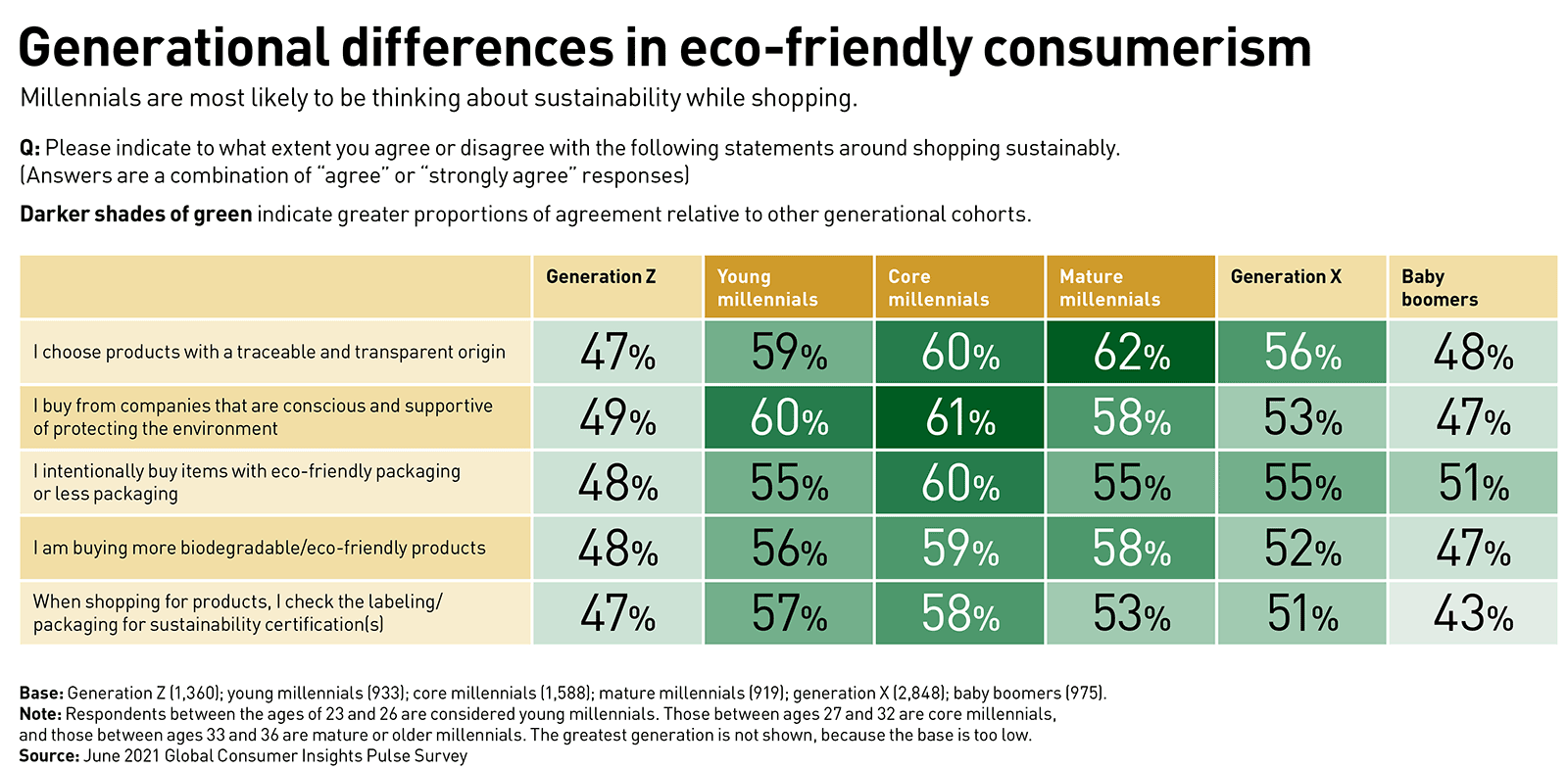During the pandemic, consumers have become more sensitive to the environmental impacts of their shopping decisions, and consumer companies are responding.
In our 2019 Global Consumer Insights Survey, just 35% of respondents said they chose sustainable products to help protect the environment, 37% said they looked for products with environmentally friendly packaging, and 41% said they avoided the use of plastic when they could. PwC’s June 2021 Pulse Survey results show percentages ten to 20 points higher in response to similarly worded questions. A study by creative research platform Visual GPS, in conjunction with market research firm YouGov, also indicates a shift during the pandemic. That survey finds that 81% of people polled expect companies to be environmentally conscious in their advertising and communications, and 69% of respondents said they were doing everything possible to minimize their carbon footprint (up from 63% just a year earlier).
All over the world, business leaders and analysts have been pondering which of the consumer behaviors accelerated by the pandemic will persist and deepen and which will recede. PwC’s June 2021 Pulse Survey, conducted more than a year after the first outbreak of COVID-19, suggests that eco-friendly consumerism is here to stay.
Consumer packaged goods companies, retailers, and grocers have long been paying attention to their customers’ growing demand for eco-friendly products. As businesses continue to launch eco-friendly innovations in products, packaging, and production, some nuances in PwC’s consumer data might help leaders chart a path forward.
Key survey findings
PwC’s survey reveals that consumers in the Asia-Pacific region are more eco-friendly than the global average. In Indonesia, 86% of survey respondents say they’ve become more eco-friendly, and in Vietnam and the Philippines, it’s 74%. Middle East consumers have also become more eco-friendly than the global average. In Egypt, 68% say they’re more eco-friendly, and in the United Arab Emirates, it’s 67%. This suggests that sustainability messaging should have amplified resonance in those regions.
There has also been substantial movement within demographic cohorts. Millennials are the most changed. Fifty-eight percent of “core” millennials (those ages 27 to 32) surveyed by PwC say they’ve become more eco-friendly. Core and “young” millennials (those ages 23 to 26) are also the most likely to agree that they consciously think about sustainability while shopping. Generation Z’s commitment to eco-consumerism lags that of millennials, which might have to do with perceptions that it’s more costly or difficult to shop sustainably (see chart).

Those working from home are also more likely to…


